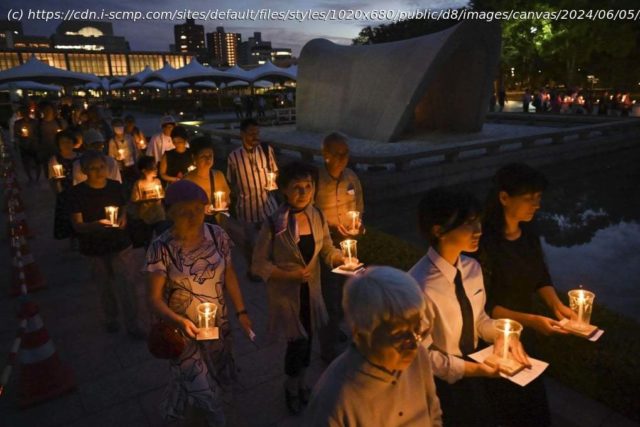As they prepare to mark the 79th anniversary of their atomic bombing, Hiroshima and Nagasaki send Israel a symbolic message on the horrors of war.
Israel’s ambassador to Japan is typically invited to Nagasaki’s annual ceremony marking the anniversary of its atomic bombing.
But this year, the city’s mayor is withholding the invitation, in a move analysts say carries symbolic weight that reflects Nagasaki’s “moral high ground” as a site of nuclear devastation, as well as the increasingly negative views of Israel held by the Japanese public.
Mayor Shiro Suzuki is also sending a letter to the Israeli embassy calling for an immediate ceasefire in Gaza, amid a growing divergence between Japanese public opinion on Israel and the more cautious stance taken by the government.
“Given the critical humanitarian situation in Gaza, and public opinion in the international community, there are concerns about the risk of unexpected incidents during the ceremony,” Suzuki said on Monday.
On August 9, Nagasaki will mark the 79th anniversary of its atomic bombing. Around 74,000 people died on that day in 1945 after the United States dropped an atomic bomb on the city – three days after doing the same to Hiroshima, where 140,000 people died – ending World War II.
Hiroshima’s government has invited Israeli ambassador Gilad Cohen to its memorial ceremonies, but included a separate letter to the ambassador and Israeli President Isaac Herzog calling for a ceasefire.
The Japanese government has echoed other nations’ calls for restraint, respect for life and peace negotiations, but analysts say its approach has been relatively muted as it does not want to offend either Israel or the Arab world.






